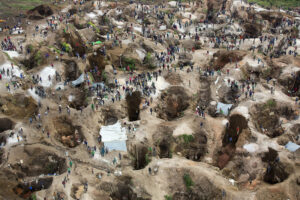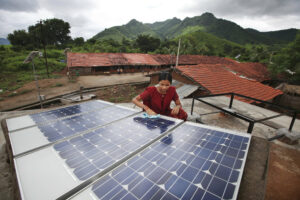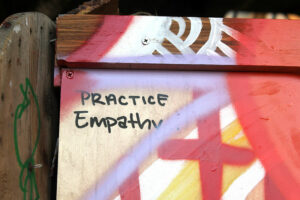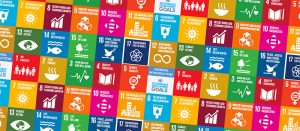What The Fact?
‘Hikvision’. Photo by Mario Sixtus via Flickr adapted and used under CC BY-NC-SA-2.0
The Irish Council for Civil Liberties claims that Hikvision, whose cameras and technology is found in the Houses of the Oireachtas, is involved in grave human rights abuses against Uyghur Muslims, but is this true? Kai Evans reviews the evidence.
The Claim
There have been recent concerns and reports alleging that Hikvision, a Chinese surveillance camera company, has been involved in the monitoring, tracking and persecution of Uyghur Muslims in the Xinjiang region of China. These claims have attracted international attention, including in Ireland, where the use of Hikvision cameras in the Oireachtas (the Irish Parliament) has been called into question.
Most recently, the Irish Council for Civil Liberties (ICCL) wrote a letter to the Houses of the Oireachtas, the Office of Public Works and political party leaders highlighting the issue, and claiming that:
‘Hikvision is implicated in grave human rights violations against Uyghur Muslims in Xinjiang.’
Despite this, Hikvision, of which the Chinese Communist Party (CCP) is a controlling stakeholder, has repeatedly denied allegations that its products are used for human rights abuses in Xinjiang, stating that the company respects human rights, operates in accordance with applicable laws and regulations, and takes any credible allegations of misuse seriously.
So, is the claim by the ICCL accurate?
The Verdict

The claim is rated true and is accurate based on the best evidence publicly available at this time.
It is well documented that the Chinese government has implemented a highly sophisticated and pervasive surveillance system in Xinjiang, and it is clear that Hikvision cameras and technology are a part of this system, as stated in their 2021 annual report. On page 326, they list projects in Moyu, Pishan, Luopo, Yutian and Urumqi, which are all in Xinjiang province.
The Evidence
The Chinese government has defended its surveillance and security measures in Xinjiang as necessary for counter-terrorism and stability maintenance. However, the international community, including the United Nations, has deemed the Chinese government’s actions in the region as ‘serious human rights violations’, including the mass internment of Uyghur Muslims in what are called ‘re-education’ or ‘thought transformation’ camps. The CCP has claimed these are
‘vocational education and training centres…intended for de-radicalization.’
Uyghur Muslims in Xinjiang have been subjected to widespread human rights abuses, including arbitrary detention, forced labour, and political indoctrination, as highlighted in these reports by Human Rights Watch, the United Nations and Amnesty International.
In addition to the internment camps, the Chinese government has also implemented a highly sophisticated surveillance system in the region, which includes facial recognition technology, DNA collection, and the monitoring of citizens’ daily lives through the use of cameras, mobile apps, and other forms of technology. The cameras even separate people by racial features, and alert the police when they spot members of the ethnic Uyghur group.
Several Western governments have raised concerns about the use of Hikvision products, including the U.S. government, which has banned Hikvision cameras and placed the company and its subsidiaries on a trade blacklist, citing human rights abuses and national security concerns. The British government has also banned Hikvision. In addition, governments in Australia, Denmark, Scotland and Wales, as well as the European Parliament, have all banned and/or removed the company’s cameras and technology.
Additionally, journalists and vloggers have shown Hikvision cameras and technology at surveillance sites and facilities in Xinjiang, including internment camps where Uyghur Muslims have been detained.
In Ireland, the use of Hikvision cameras in the Oireachtas has been criticised, with some calling for their removal due to concerns about the company’s alleged involvement in human rights abuses in Xinjiang, as well as for national security concerns.
Why are governments restricting or banning the use of Hikvision technologies?
While the focus of this fact check is the persecution of Uyghur Muslims, it is also worth noting that governments are also concerned about the use of Hikvision technology for three key reasons of national security:
- The Chinese Communist Party is a controlling stakeholder in the company. This means they could, via Hikvision, potentially have access to other governments’ data, or the independence of national governments could be called into question if the CCP uses this data to influence policymakers or the public.
- Italian investigators discovered Hikvision cameras in Rome’s Fiumicino airport sending data back to China 11,000 times every hour.
- Other researchers discovered numerous ‘critical’ security vulnerabilities that allow hackers to seize total control of the cameras, and would not be detectable.
These concerns, alongside the issues highlighted surrounding Hikvision’s involvement in the persecution of Uyghur Muslims have been enough for many governments and multinational organisations, such as those mentioned above, to either ban or remove Hikvision technology.
Replies from Hikvision
It is important to note that information coming out of the region is tightly controlled by the Chinese government and can be extremely difficult to obtain. However, despite this, there is still a large amount of evidence from reputable sources, as highlighted above, pointing to the use of Hikvision technology being used to monitor, track and persecute Uyghur Muslims in Xinjiang.
In July 2021, the British Government’s Foreign Affairs Committee published a report stating that Hikvision ‘provide the primary camera technology used in the internment camps’ and recommended that it ‘should not be permitted to operate within the UK.’ In response, Hikvision claimed that ‘operational matters are not within our remit’ and that the accusations were ‘unsubstantiated and not underpinned by evidence’. Just four months later, Hikvision, when questioned by the BBC, stated that the company
‘respects human rights, and strives to uphold the highest standards in every aspect of manufacturing, labour, the supply chain, and end-use.’
This is seemingly in contradiction to their previous statement that operational matters are not within their remit.
The Chinese Communist Party continues to reject any findings or evidence from journalists, detainees, governments or multinational organisation related to the persecution of Uyghur Muslims, claiming them as
‘disinformation and lies fabricated by anti-China forces’ and that they ‘violate principles including…non-politicization of human rights.’
Conclusion
In conclusion, there is a significant amount of credible evidence from multiple sources pointing towards the company’s technology being used as part of the broader surveillance system in Xinjiang, where the majority of Uyghur Muslims call home. The full extent of Hikvision’s involvement remains unclear however, due to information in the region being tightly controlled by the Chinese government’s one-party system.
The use of Hikvision cameras in Ireland is also under scrutiny, with some calling for their removal from the Houses of the Oireachtas due to concerns about the company’s alleged involvement in human rights abuses, as well as national security concerns. Other governments, such as in the USA and Australia, have already taken steps against Hikvision and their role in the persecution of Uyghur Muslims by the Chinese government. The current hypocrisy of the Oireachtas is perhaps best highlighted by the ICCL themselves, when they write:
‘The Oireachtas welcomed Dolkun Isa, the President of the World Uyghur Congress, in February 2022. The same month the Seanad accepted the findings of an independent report into the oppression of Uyghurs by China’s government. But as Irish Senators condemned this discrimination, they were doing so in a building that is under the watchful eye of Hikvision cameras. Those cameras are still in use.’
Verdict
Based on the What The Fact? scales guide, the claim is rated as True – the claim is accurate based on the best evidence publicly available at this time.
- Kai Evans is a masters graduate in International Development, and a contributing writer with developmenteducation.ie
developmenteducation.ie’s What The Fact? supports the code of principles of the International Fact Checking Network. We check claims by influencers, from local to national to transnational that relate to human rights and international human development.
Transparent fact checking is a powerful instrument of accountability, and we need your help. Send tips and ideas to facts@developmenteducation.ie
Join the conversation #whatDEfact on Twitter @DevEdIreland and Facebook @DevEdIreland
More on developmenteducation.ie

Trends Report 2023
A round-up of activities, events and trend analytics from developmenteducation.ie in 2023

Are lithium batteries the magic wand for the world’s woes?
Elon Musk tweeted that ‘Lithium batteries are the new oil’ as an essential energy source of a cleaner, greener future. Is he right? A fact check by Kai Evans

Decolonise engineering
How do we remove the legacies of colonialism from engineering? Engineer Adedotun Adekeye explores this question in a new two-part series

Empathy – Who Cares Anyway?
Brighid Golden explores the concepts of sympathy, empathy and selective empathy and how to explore these in your teaching spaces.

A guide to exploring the SDGs through data
Not sure where to begin with data on the SDGS at local, regional, national or international? We have you covered. A short guide by Kai Evans

African migrants roast dog in Ireland? No, video of pig barbeque for Dublin homeless
A video showing an animal being roasted on a spit has brought vitriolic racist hate online, with commenters claiming it shows African migrants in Ireland roasting a dog. But the animal in the video is a pig. A fact check by Mary Alexander.
